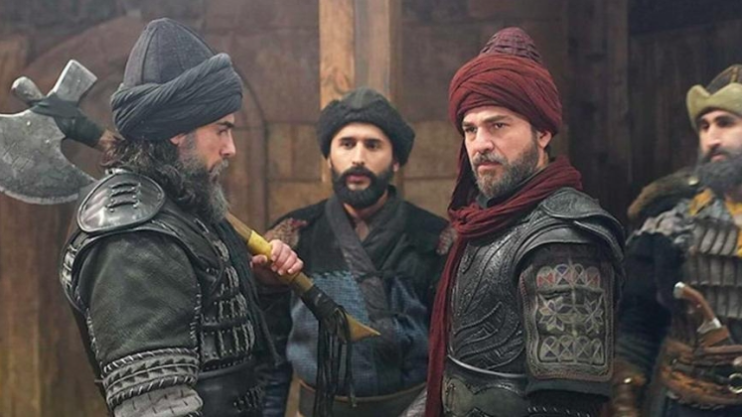Ertugrul was non-Muslim and Turkish drama is fictitious: Pakistan History Professor
Lahore – Ertugrul was non-Muslim and the Turkish drama is completely fictitious, which has no relation to the history, said Dr. Faraz Anjum, history professor of Punjab University of Pakistan, while backing his claim with authentic historical records.
According to Dr. Anjum, the Turkish drama Dirilis Ertugrul has been well-received on social and electronic media, which made a lot of Pakistani viewers call it “the story of golden age of Islamic history”, but a lot of them have no idea about the actual history.
He said that, major scholarly work on Turkish history is available in four-volumes titled “Cambridge History of Turkey”, edited by Professor. Suraya Farooqi, who holds authority on Turkish and Ottoman history. Interestingly, the first volume deals with the period from 1071 till 1453 C.E., and Ertugrul’s name is mentioned only once on page 118.
Dr. Anjum cited Farooqi’s statement that, “We know nothing about the life of Ertugrul, and his existence is independently attested only by a coin of his son Osman”.
Further he quoted, Dr. Muhammad Uzair’s two-volume book in Urdu, “Daulat-e-Osmania” which means The Ottoman Wealth. The preface of the book was written by Syed Sulaiman Nadvi where he mentioned the purpose of the book was to familiarize Indian Muslim with the Turks’ accomplishments. The book was later published by Darul Musnafin, Azamgarh in India.
Dr. Anjum backed his claim with Dr. Uzair’s statement that, “Suleiman Shah and Ertugrul were non-Muslims and the first person in the tribe to convert to Islam was Ertugrul’s son Osman”.
Further, Dr. Uzair presented the testimony of the western historian, who said, “In the beginning of the thirteenth century AD, the tribes of Khurasan and other Trans-Canal regions appeared on the borders of Asia Minor. There is no explicit mention of their conversion to Islam in any of the histories. That is, Osman’s great heir Sulaiman Shah and his companions, who left their homeland, were non-Muslims”.
Further the testimony states, “The majority of tourist testimonies from the twelfth century onwards and later show that these nations were pagan, the various Turkish tribes who entered Asia at that time found themselves in an Islamic environment. The conversion of Uthman and his tribe to Islam gave rise to the Ottoman Nation. It was as a result of this conversion that Uthman’s victorious activities began after 9 AH (1290)”.
The testimony also states that Ertugrul had peaceful relations with neighbors and he never fought “infidels”.
“Ertugrul and Uthman lived a simple life in Sagut as a village chief. There is no mention of any war or victory of his time in history. Ertugrul’s relations with his neighbors were very peaceful. The broadcast states that both the infidels and the Muslims of this country respected Ertugrul and his son. There was no question of Kafir (Non-Muslim) and Muslim. Then all of a sudden we see ‘Uthman attacking his neighbors and conquering their forts. There is a preaching zeal in these people which is found only in those who have recently converted”, the testimony ended.
Dr. Anjum explained that, “The Ertugrul of history was probably not even a Muslim and even if he was a Muslim, all the details of the Jihad against the Crusaders and the Mongols which are the adornment of the drama are not backed by historical evidence”. “If you like the drama, you must consider it as fiction or story, but please don’t make it a drama of Islam”.



